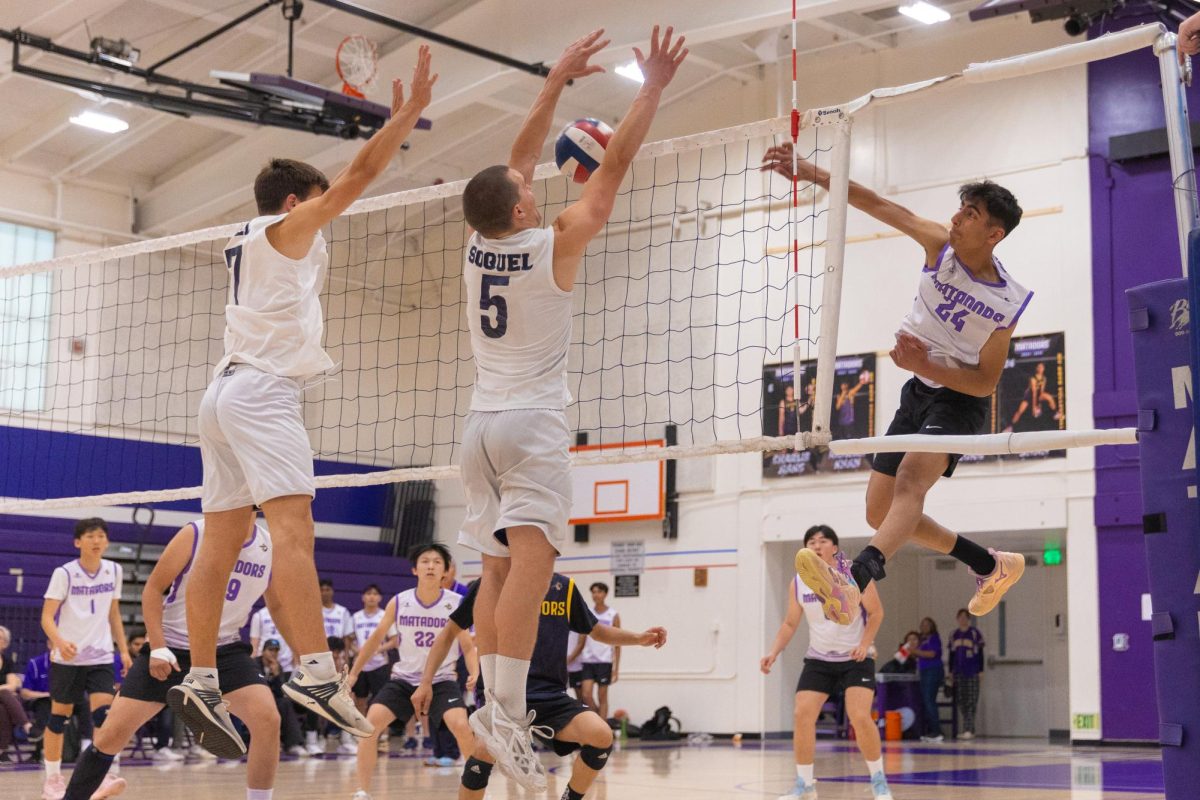After the 2023 spring track and field season started, junior Clara Fan recalls being pulled aside by two of her teachers who were worried she hadn’t been acting like herself. Fan hadn’t been as upbeat or engaged in class as usual, but when her teachers brought up their concerns, Fan was surprised there was an issue.
“I’m really grateful that they noticed because before then I just thought I was being really focused and diligent,” Fan said. “I felt like I really had to focus up academically because during track season, I wasn’t hitting the marks that I wanted to or hitting the goals that I set for myself.”

During the beginning of track season, Fan was hyper-focused on reaching goals that she thought would help her perform better: getting enough sleep and eating right, for instance, and finishing all her schoolwork quickly to make the first two goals more feasible. However, Fan quickly burned out, and it was only when she remembered to have fun with track competitions and practices that she started doing well again.
Fan was experiencing athlete burnout, a response to continual training and chronic stress. Burnout can be caused either by coaches who encourage their athletes to push through stress and symptoms of overtraining, or by athletes who push themselves too far to meet personal goals. Though burnout is widespread amongst athletes and can have serious physical and psychological effects, sports psychologists say that its effects are often underrepresented.
Freshman Rita Bondar has recognized burnout in friends and teammates as well as in herself and acknowledges everyone experiences burnout differently. For her, symptoms manifested as a lack of motivation to go to swim or cross country practice. Schoolwork was particularly challenging, especially on block days when she had the classes she was struggling with the most.
“When I got home from school I was just like I don’t have the energy to do this,” Bondar said. “I’d just refuse to go or just turn off my dad’s alarm. Sometimes if I was having a bad day, I would not run as great or swim as good. And I feel like looking back, I could have done so much better.”
Academics was also a major aspect of sophomore Sean Foo’s experience with burnout. Foo was used to a rigorous training schedule in middle school, but once he entered MVHS, keeping up with the increasing academic workload on top of intense physical training was overwhelming. Foo felt burnout the most during cross country in the fall, because after running six miles every day, by the time he got home he’d be too tired to focus and do other work.

“When you’re constantly tired, it’s hard to have motivation for a lot of things,” Foo said. “I would often be too tired and I would spend the day trying to figure out how I can get more energy so that I can survive two hours of practice and then survive my schoolwork at home. I would have to trade in more time that I spent studying for more sleep so that I could try and gain more energy. I had to drink energy drinks, or just find all different sorts of ways to be able to be ready for meets and games. After two seasons of sports, I decided that I wasn’t going to do a spring sport.”
The 2023 track season wasn’t Fan’s first time struggling with burnout. During the fall of 2022 Fan was participating in both club soccer and school basketball. She recalls not looking forward to going to soccer practices and not performing well. Though Fan tried to push through her frustration, she ultimately decided to stop playing soccer and focus on basketball, because soccer wasn’t something she enjoyed anymore.
“I think that basketball pulled me out of what could have become complete burnout, physical and mental, because going into basketball brought me a lot of motivation,” Fan said. “So I realized that in basketball and track, I enjoy competing in and hanging out with people within those sports. In soccer, neither of the aspects, like the social or the actual athletic aspect, were bringing me that much happiness anymore.”
Fan says that in her experience, playing multiple sports makes athletes more susceptible to burnout because of the additional physical and mental stress. She also recalls how switching from basketball to track and losing the support network of her basketball teammates in the process made the start of her track season that much more difficult.
“I went from seeing my teammates every day for like three hours a day — or sometimes over the weekend we’d spend 10 hours a day together — so that was a big transition to not seeing them every day, to just saying hi to them in the hallways,” Fan said. “And with track it’s more individual than basketball, so there’s not as much social interaction. And you can really be more critical about yourself because it’s individual and your results are truly on you.”

One article by the NCAA notes that burnout can be caused when athletes’ motivation to play a sport shifts from intrinsic reasons — like experiencing joy when playing the sport — to extrinsic reasons, such as winning awards or scholarships. This shift in motivation can cause athletes to feel more pressure, leading to them feeling trapped inside their sport, and decrease the satisfaction that comes with it.
Foo says that burnout also made connecting with other people more difficult. At school he’d be too tired to interact with most people, and though he’d talk with close friends, he wouldn’t have enough energy to do much else. He wouldn’t go anywhere after school and practices, he’d just go home to sleep.
“For me, the burnout lasted a while, probably a month,” Foo said. “And I came out of it because I had to. There was no other option. I would just try to ignore the tiredness I felt and try to focus as hard as I could. And eventually, things started to ease out.”
On the other hand, Bondar says she relied on her teachers and teammates to help her through burnout. Her teachers were understanding and helped her figure out how to do better in their classes, and her coach would talk with her to improve her self-talk and mindset for sports. Bondar’s teammates helped her by encouraging her and reminding her of her self-worth, and she also found that watching her friends persevere through their own burnout during practices inspired her to overcome her burnout.

Ultimately, Foo and Fan both recommend that athletes avoid pushing too far past their limits. Foo says athletes should be aware of what their bodies are capable of, and if an activity is too taxing to the point where it affects their health, then they should reconsider that activity. Likewise, Fan says it’s important for athletes to remember the intrinsic reasons — having fun, making friends, and so on — that motivate them in the first place.
“To prevent burnout, I would say, just remember why you’re doing the sport — it’s because you enjoy it,” Fan said. “And just be grateful that your body is able to actually practice or do whatever you’re doing. And yeah, just remember to have fun while working hard, enjoy the process and know that it’ll work out.”











